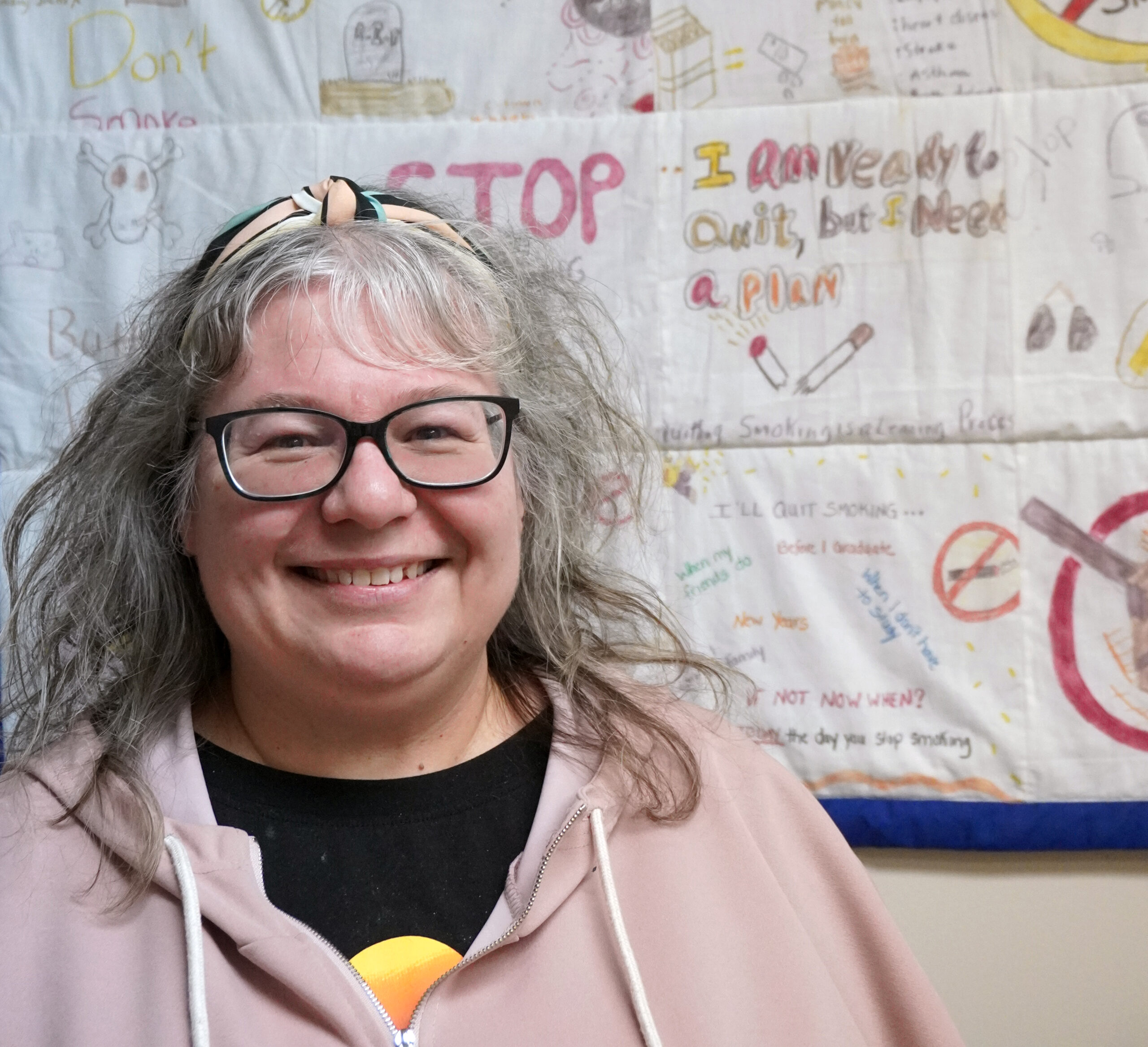Vaping is more popular among youth than smoking, according to the provincial tobacco control board.

Clifton Tam
Kicker
While the smoking rate continues to decrease, the vaping rate keeps increasing especially among young people.
According to the 2022 Canadian Tobacco and Nicotine Survey, 23.4 per cent of youth in Newfoundland and Labrador 15 to 19 have vaped in the past 30 days. It is the highest percentage among all provinces.
Almost 40 per cent of Grade 10-12 students used e-cigarettes in the past 30 days according to the Canadian Student Tobacco, Alcohol and Drugs Survey 2021-2022. Forty-nine per cent of students Grades 7-12 are getting e-cigarettes either bought, borrowed or shared from family members or friends.
The vaping rate is a rising concern, says Melissa Moore, a program and education coordinator at The Newfoundland and Labrador Alliance for the Control of Tobacco.
E-cigarettes are more popular than traditional cigarettes among youth, says Moore, and that’s because vapes come in a variety of flavours, are discreet to use and are cheaper than smoking. The average cost of a pack of smokes is $16. A pack-a-day smoker will spend approximately $5,200 a year compared to a vape user who will spend approximately $1,100.
Nicotine addiction is a major health issue associated with vaping, she says, and it’s much more harmful to lungs that never smoked a cigarette.
“Nicotine is a very dangerous drug for young people,” said Moore. “It affects their brain development, it affects their memory and concentration, it affects their anxiety and depression.”
However, Moore says, vaping can be a less harmful way to quit traditional cigarettes because it doesn’t burn tobacco.
Megan Neil is a manager at the Newfoundland Puffin Company, a local vape shop. She says she vapes a few times every 20 to 30 minutes.
“When I made the switch over (from smoking) to vaping, I felt like my lungs got so much better,” said Neil. “I was no longer coughing up black stuff and my fingers weren’t yellow anymore.”
Moore and Neil believe flavours play a significant role in attracting people to vaping, especially younger people.
“I think the main focus right now of e-cigarette regulation would be getting the flavours banned,” said Moore.
“It would have a big effect on teen usage,” said Moore. “Because kids are not going to be using vapes, unless they are heavily, heavily, heavily addicted. They’re not going to be experimenting, they’re not going to be exchanging, they’re not going to be sharing if the only flavour is tobacco flavour.”
Paul Newman is one of the owners of the Newfoundland Puffin Company. He says if the province bans flavours, it will create a massive black market.
“I’d like to say that the flavoured vape industry will never go away. It is here to stay,” said Newman. “If the government bans it, they will lose billions of dollars in taxes which will be going into the hands of criminals on the black market.”
Instead of targeting vape shops, he says, the government should be targeting minors themselves with stricter penalties if they are caught with illegal vape products.
Teens don’t need a local store, Newman says, they can easily buy nicotine vape products online.
The long-term health effects of vaping remain unknown, says Moore.
“We have not reached a point where we can look at long-term studies (about vaping),” said Moore. “There’s nobody that’s been vaping for 50 years. There’s nobody that’s been vaping for 30 years.”
People were very concerned about e-cigarettes when first introduced, Moore says, but the message gets diluted when it comes to other issues that overshadow it.
“We’ve got COVID, we’ve got alcohol, we’ve got food security, we’ve got homelessness, we’ve got so many other issues that we need to deal with,” she said.
However, she says, support is always out there. If people are looking for help they can call the smokers’ helpline at 1-800-363-5864. Also, nicotine replacement therapy is available at every pharmacy, she says.
“Don’t quit quitting, don’t stop after one try,” said Moore.
“Nicotine addiction is a hard addiction to break but it’s possible and you can do it. You just need the right support, and the support is out there. You just need to ask.”




Be the first to comment